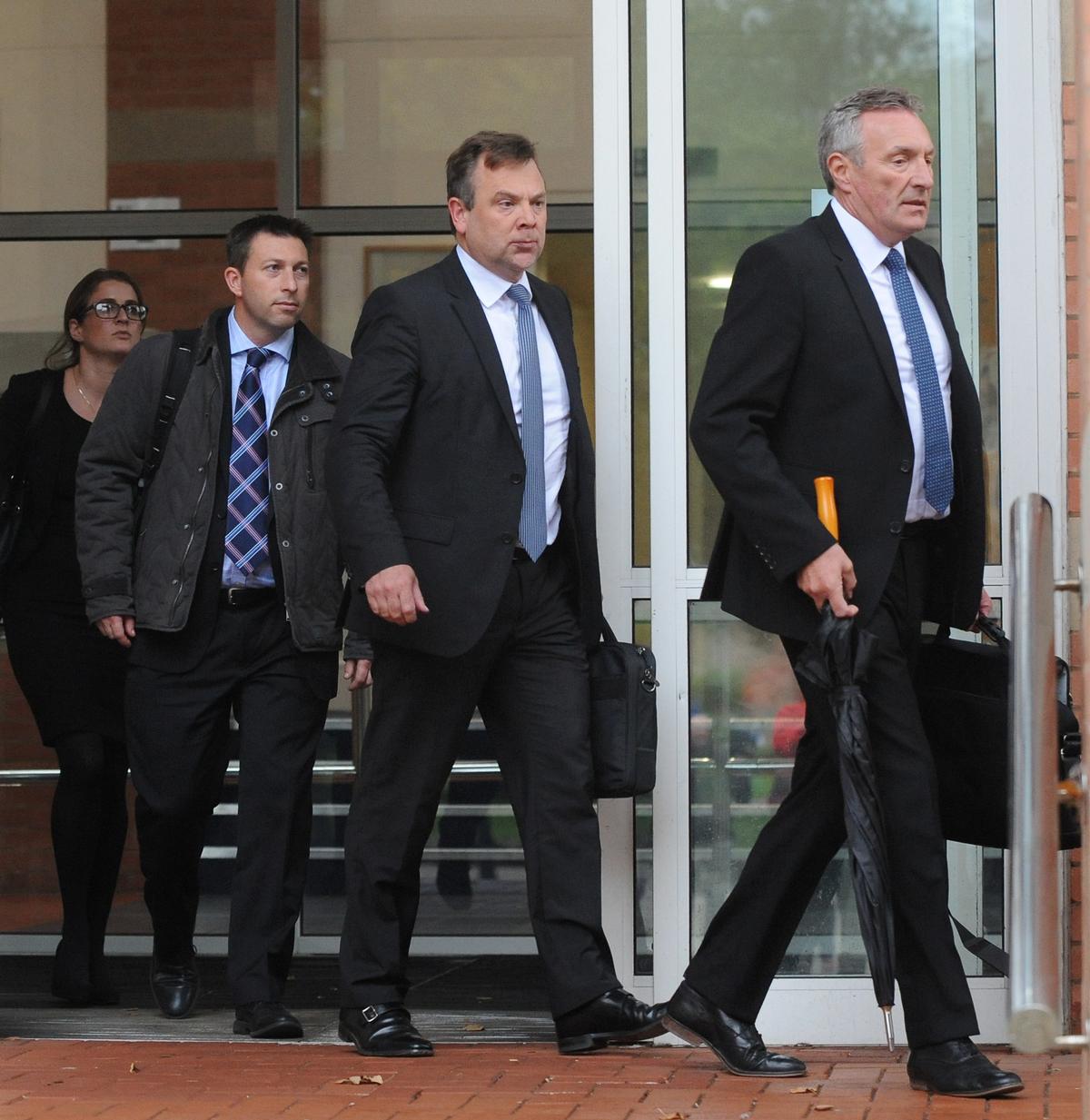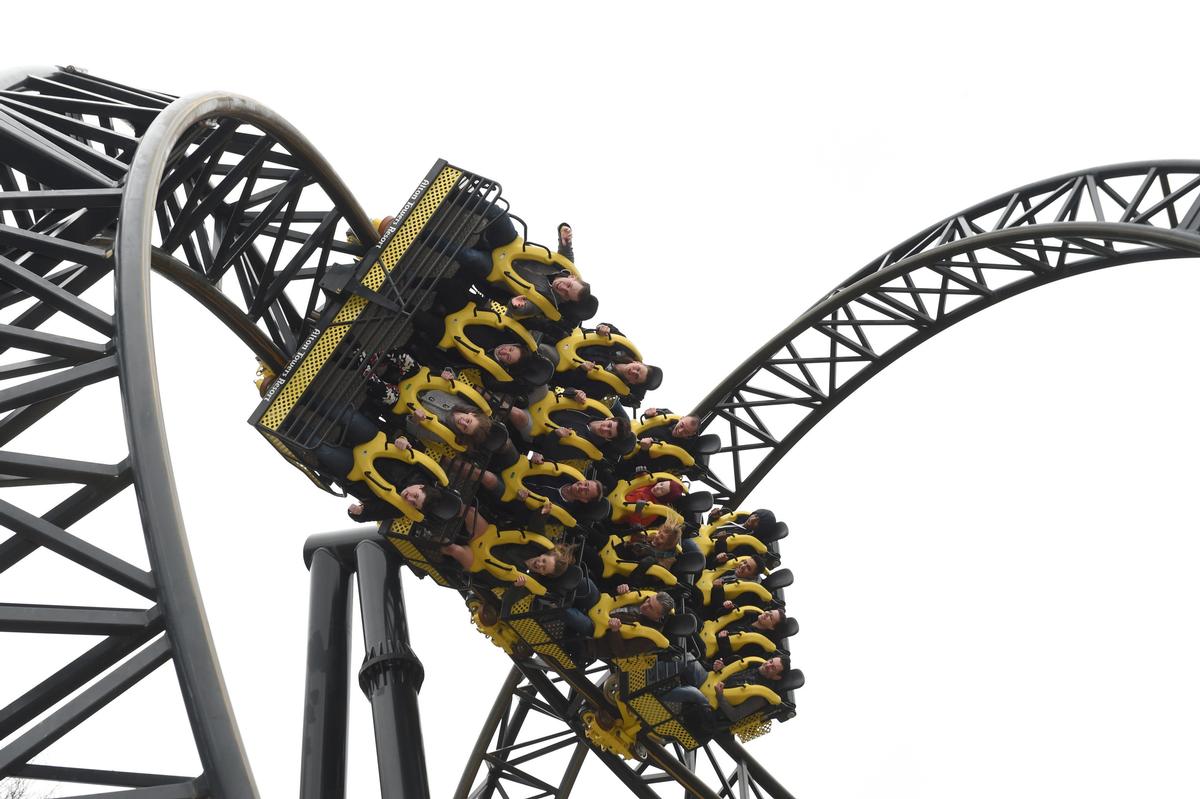see all jobs
Merlin fined £5m for Alton Towers Smiler crash after 'catastrophic' safety failure
Merlin Entertainments has been fined £5m (US$6.5m, €5.7m) after last year’s horrific Smiler crash at Alton Towers, an accident which left five visitors with life-changing injuries including two leg amputations.
Delivering his verdict in front of Vicky Balch and Leah Washington – who each lost a leg in the crash – and Joe Pugh, Daniel Thorpe and Chandaben Chauhan, who were all seriously injured, judge Michael Chambers said the crash was a "catastrophic failure" of safety by Merlin, ruling that the accident was not caused by human error, but by absence of safe systems.
"No financial penalty can put the clock back, and should not be seen as putting a value on the victims' injuries," said the judge.
"It was a needless and avoidable accident in which those injured were fortunate not to die," he added, also saying that the case was aggravated by the lack of access to those injured, that left them hanging in the air for significant amount of time following the crash.
Chambers said that the crash was "foreseeable" and that Merlin had fallen "far short of required standards" in terms of safety protocol and that the system of training for its engineers was "woefully inadequate".
He also acknowledged that Merlin had since taken "full and extensive steps to remedy the problems," and that the operator has a "good health and safety record overall".
Speaking outside court after sentencing, Paul Paxton, the lawyer representing eight of the victims, said his clients had been "shocked and disappointed by the catalogue of errors" that led to the crash.
CCTV footage of the accident was released for the first time during the court case, which shows an empty carriage sitting motionless on the track, while a second approaches at high speed before smashing into the back of the stationary car. Prior to the accident, footage showed the carriage held by the safety system at the top for the first loop for close to eight minutes before it was released and hit the empty car.
During the court case yesterday, the collision was likened to having the same impact as a 1.5-tonne family car crashing at 90mph (144.8kmph), and that those on front row of the Smiler train could see what was going to happen moments before the crash.
Representatives for the Health and Safety Executive (HSE) had previously said during the case that the Gerstlauer-manufactured £18m (€16m, £13.9m) Smiler, which opened in 2013, never had a "proper settled system" for staff to follow if a carriage stopped on the track.
The Smiler ride itself, the prosecution said, was “well-designed” as were the computer and “sophisticated” control systems, while the actual operator of the ride had also followed the set-out “safe working practices”.
It concluded that Merlin had fallen “far short” in regards to a need for engineers from the park’s technical service’s department to fix faults on the ride, adding that there was “absolutely no evidence of a task analysis-based approach for engineering work, in particular in dealing with ride faults”.
Wind gusts of 46mph (74kmph) were blamed by the prosecution as the reason the empty test train failed to complete its run, but staff failed to notice that it was still on the track.
In its defence, Merlin refuted claims that wind was the cause of the train getting stuck on the track. The company argued rather that is was the train’s brakes slowing the ride “more than they should have done”. It is recommended by the manufacturer that the Smiler does not operate in winds above 34mph (54.7kmph).
Merlin’s defence team also wanted to “make clear” that it has accepted responsibility and that while no one intended the accident to happen, the crash “was avoidable”.
The defence also set out the reasons why Merlin is a “good organisation”, including its charity work and previous safety record, and accepted that training and protocols needed to be improved.
A 254-page report by the Health and Safety Executive concluded that it was “very likely that this accident would have been avoided” if Merlin and Alton Towers had given adequate training in the technical services department.
The Smiler reopened in March for the first time since the accident. During its closure, the ride was equipped with 30 new safety features, including technical improvements. Staff were also given additional training and the park has also added further protocols to the manual override process so that a senior staff member has to authorise and action the decision. Additional surveillance cameras and additional staff inspection checks have also been put in place.
More News
- News by sector (all)
- All news
- Fitness
- Personal trainer
- Sport
- Spa
- Swimming
- Hospitality
- Entertainment & Gaming
- Commercial Leisure
- Property
- Architecture
- Design
- Tourism
- Travel
- Attractions
- Theme & Water Parks
- Arts & Culture
- Heritage & Museums
- Parks & Countryside
- Sales & Marketing
- Public Sector
- Training
- People
- Executive
- Apprenticeships
- Suppliers

















































